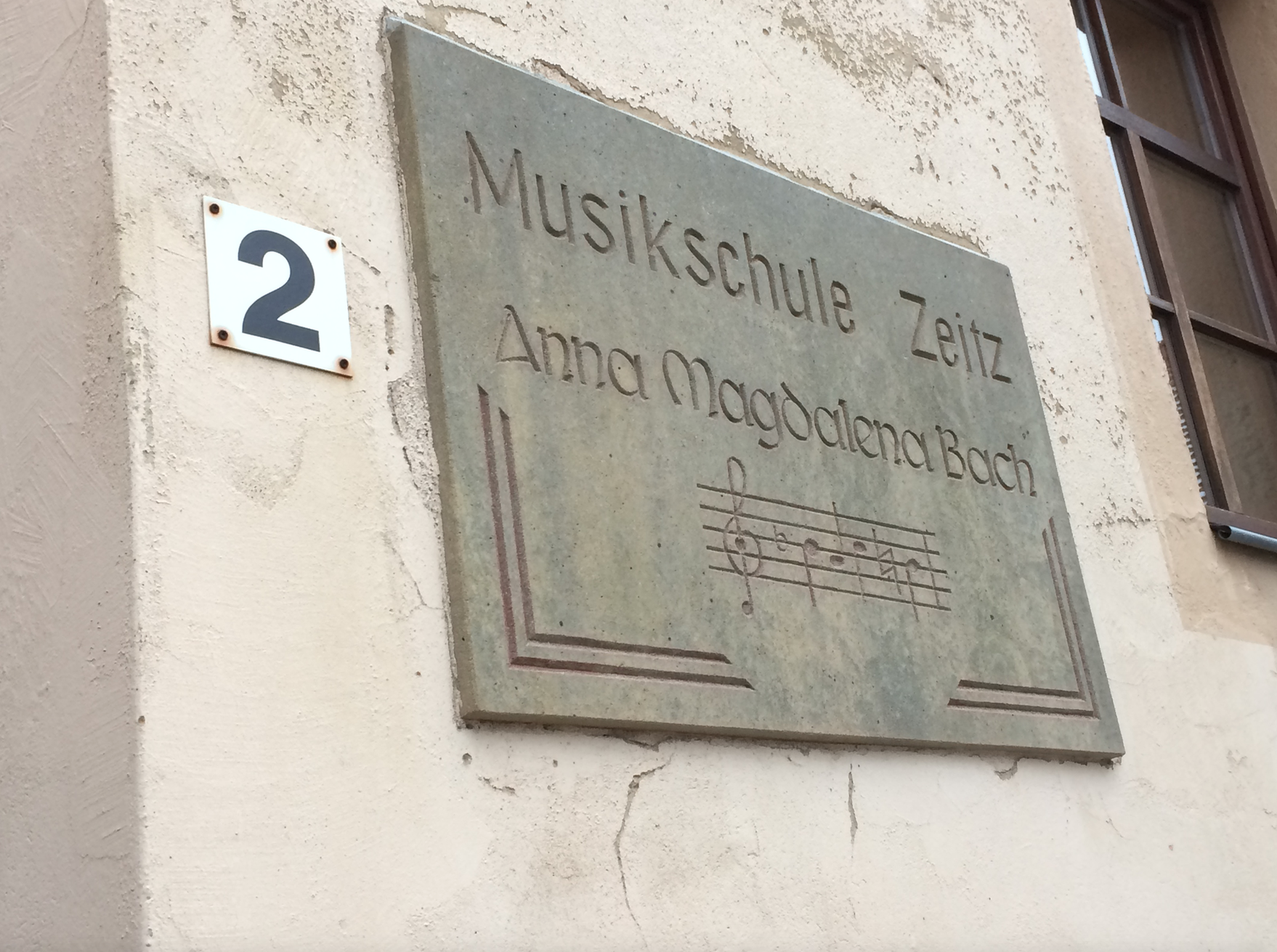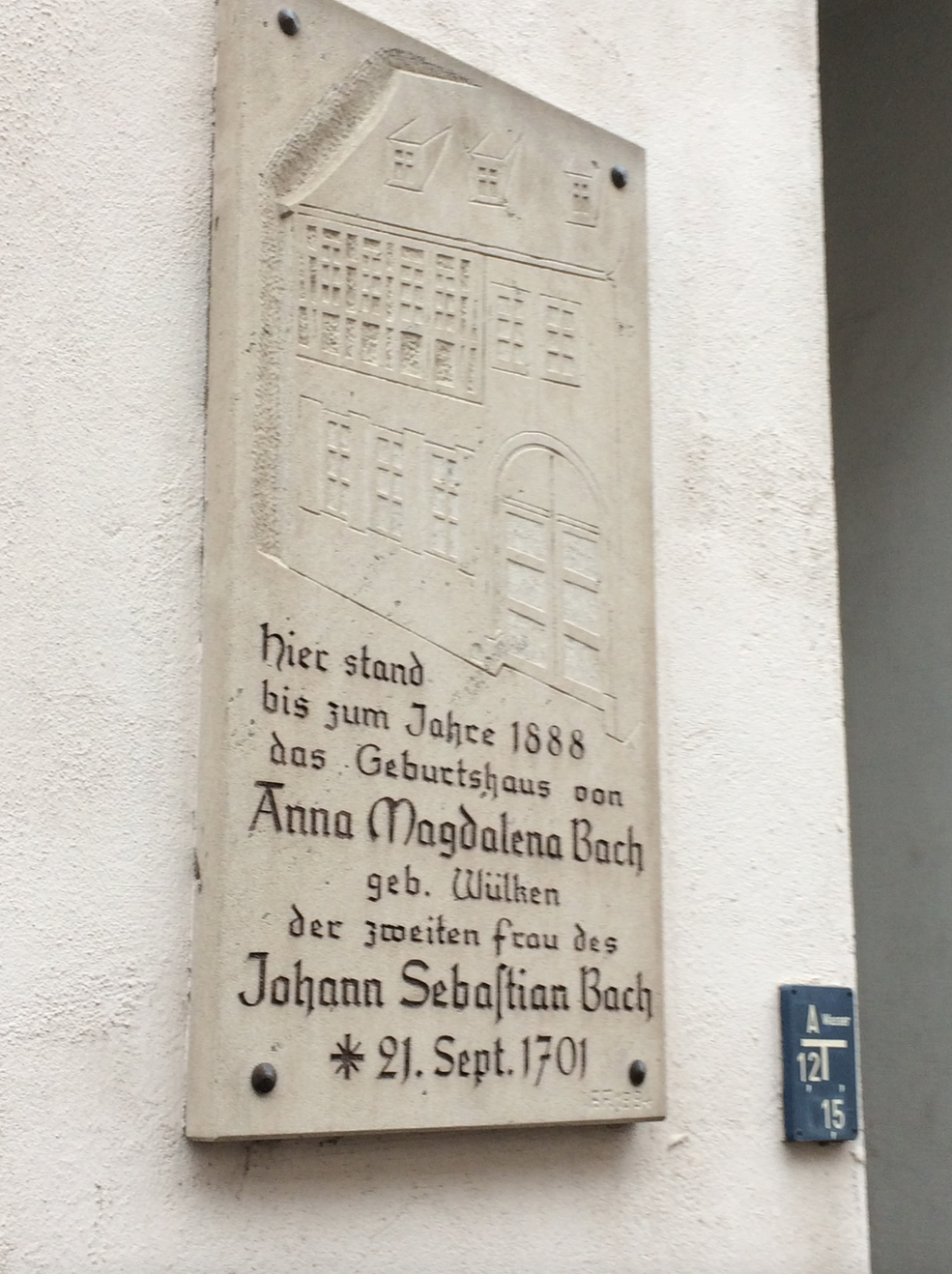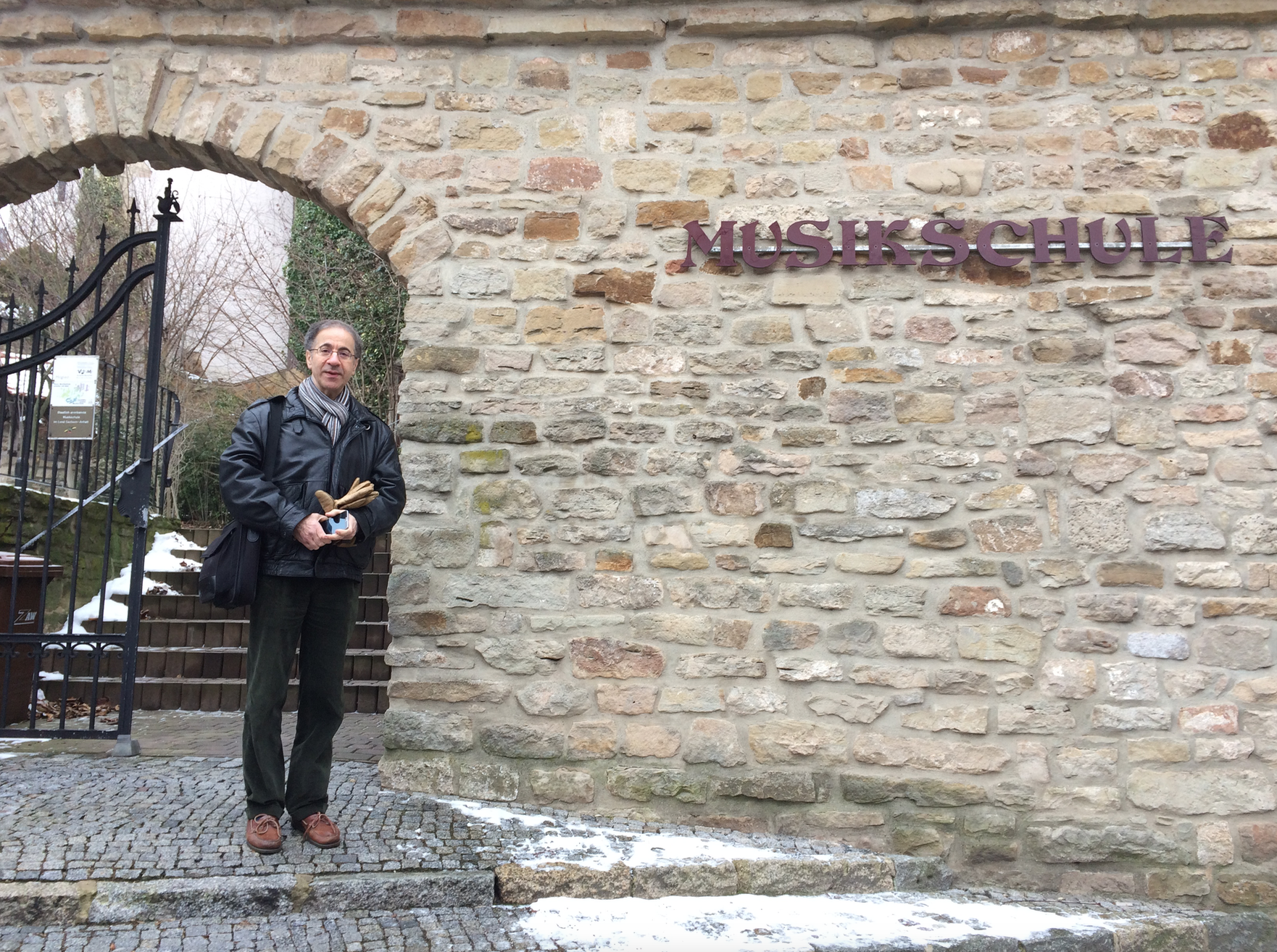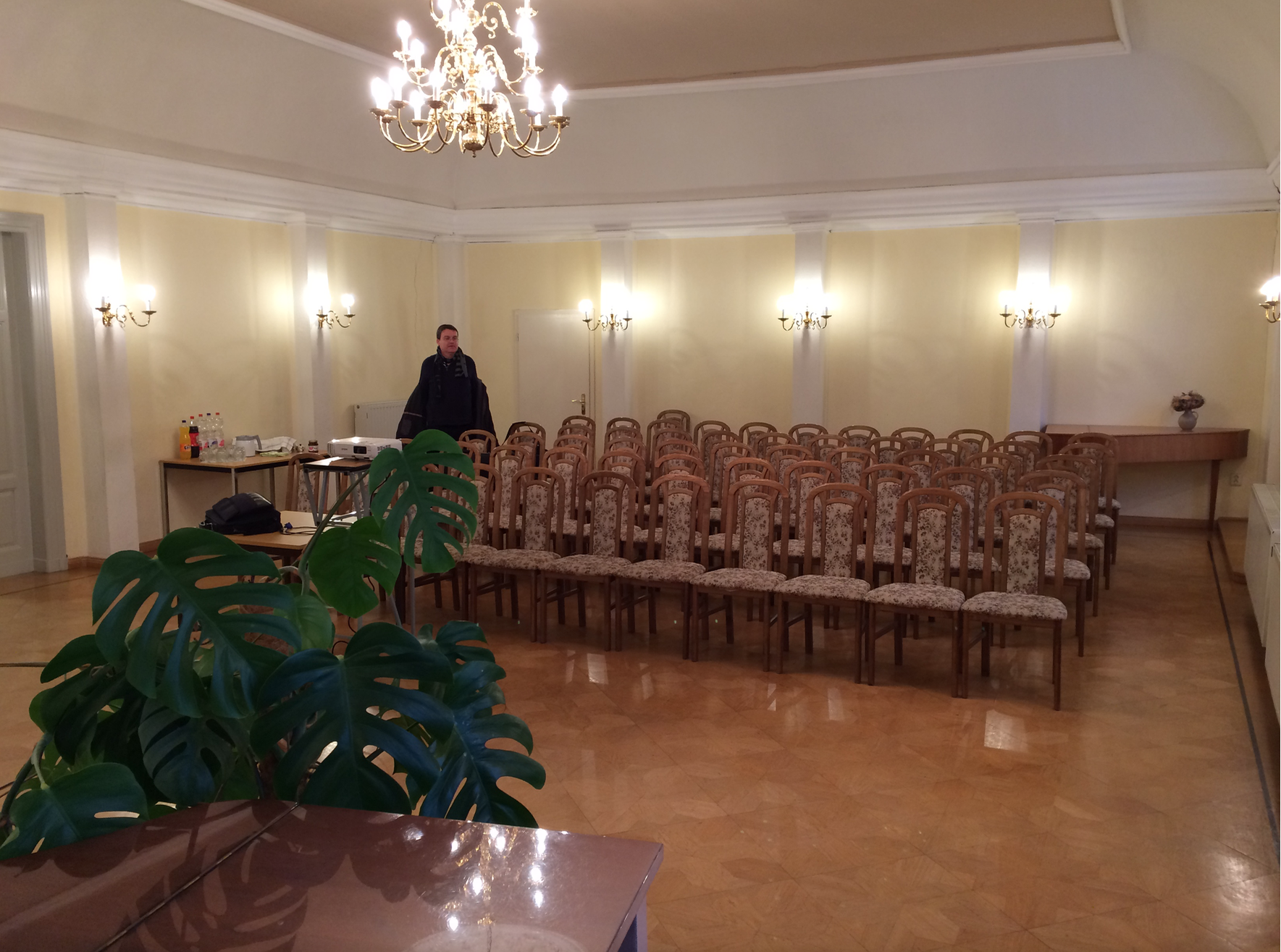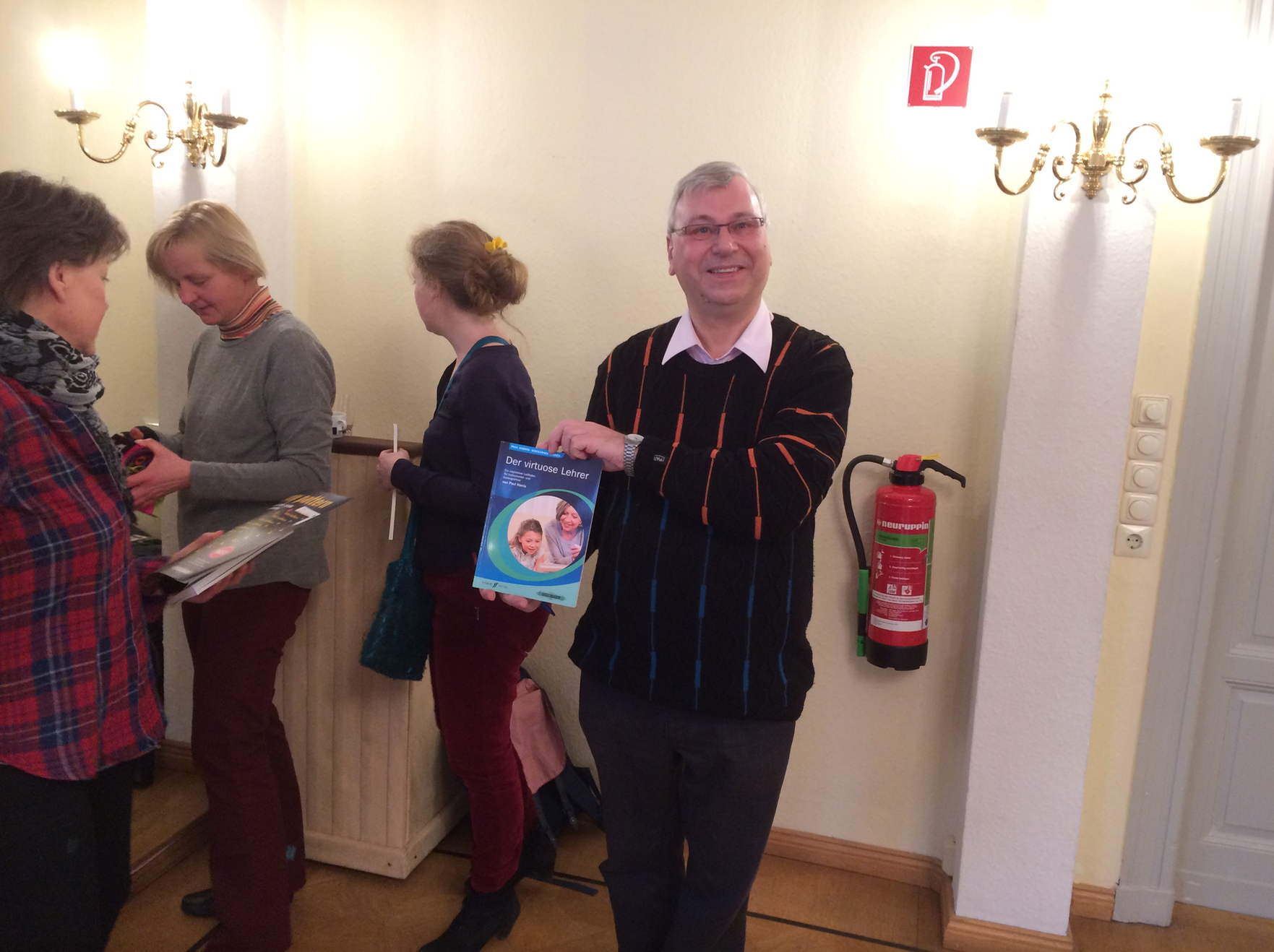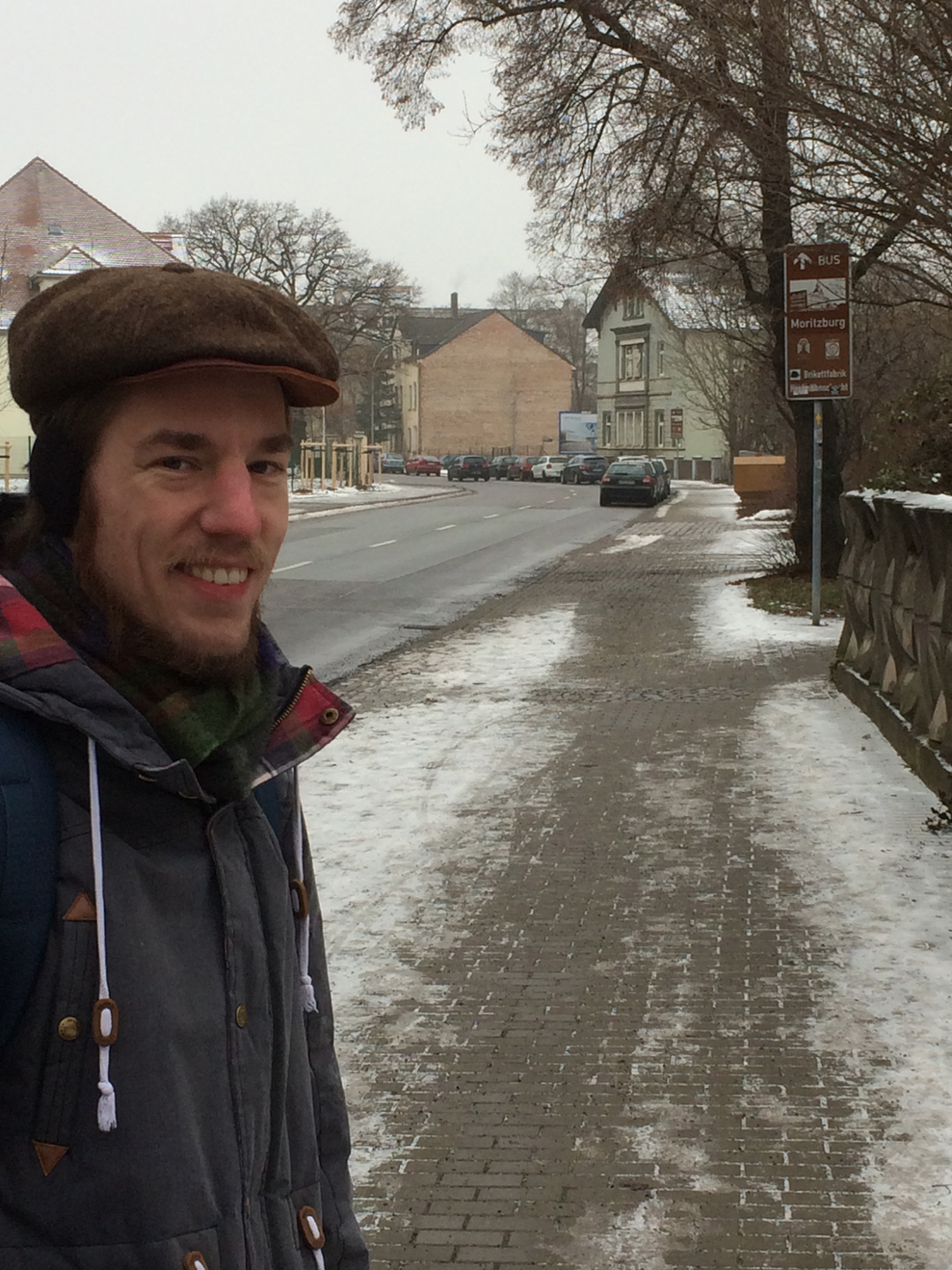Just back from an amazing trip to Germany. The Improve Your Teaching series has been translated into German recently and this was my second visit in the last couple of months to work with teachers. This time I was invited to a music school in the town of Zeitz, about 50 kilometres south of Leipzig. The invitation was to the Anna Magdalena Bach Music School, so named because this is the town where JSB’s wife was born and it’s where they met. In fact after my session I found and stood outside Anna’s house – the two of them must have done so, many times, at precisely the same spot nearly 300 years ago. It was a haunting and evocative moment.
Zeitz is an extraordinary place. Walking from the station (Max, my translator and I had just arrived from Leipzig) there was hardly a soul to be seen. The roads were empty. Many buildings just a shell – houses, factories and churches with no roofs and the glass windows all shattered. It was like being transported back 50 or 60 years into another world. But when we arrived at the musikschule all was suddenly transformed. A warm-hearted building – and the room I was presenting in was gloriously decorated with a chandelier and lovely chairs. And suddenly there were people – musicians and teachers who had arrived from the seemingly deserted town. The musikschule began to wake up with music issuing from many of it’s Hogwart-like spaces and we began to discuss music, teaching and learning.
I talked about being a Virtuoso Teacher and about Simultaneous Learning and could see these ideas feeling quite new to most of my audience. But we had a very lively chat afterwards and it all seemed to go down well. My thinking is always developing and I like to feel that no two sessions are the same. At the moment my predominant thought is the importance of teaching the right thing at the right time. I occasionally hear stories of pupils being given music which is too advanced and their teachers getting annoyed that they can’t play it…
One teacher came up with the perfect summary for the day … it’s really just about being kind they said…
Photos from left to right..
Bach's grave in Leipzig; Entrance to Musikschule; Plaque outside Anna's house; Me outside the Musikschule; The Musikschule; The lovely room we were in; some books; Matthias the school head; Max my excellent interpreter.



